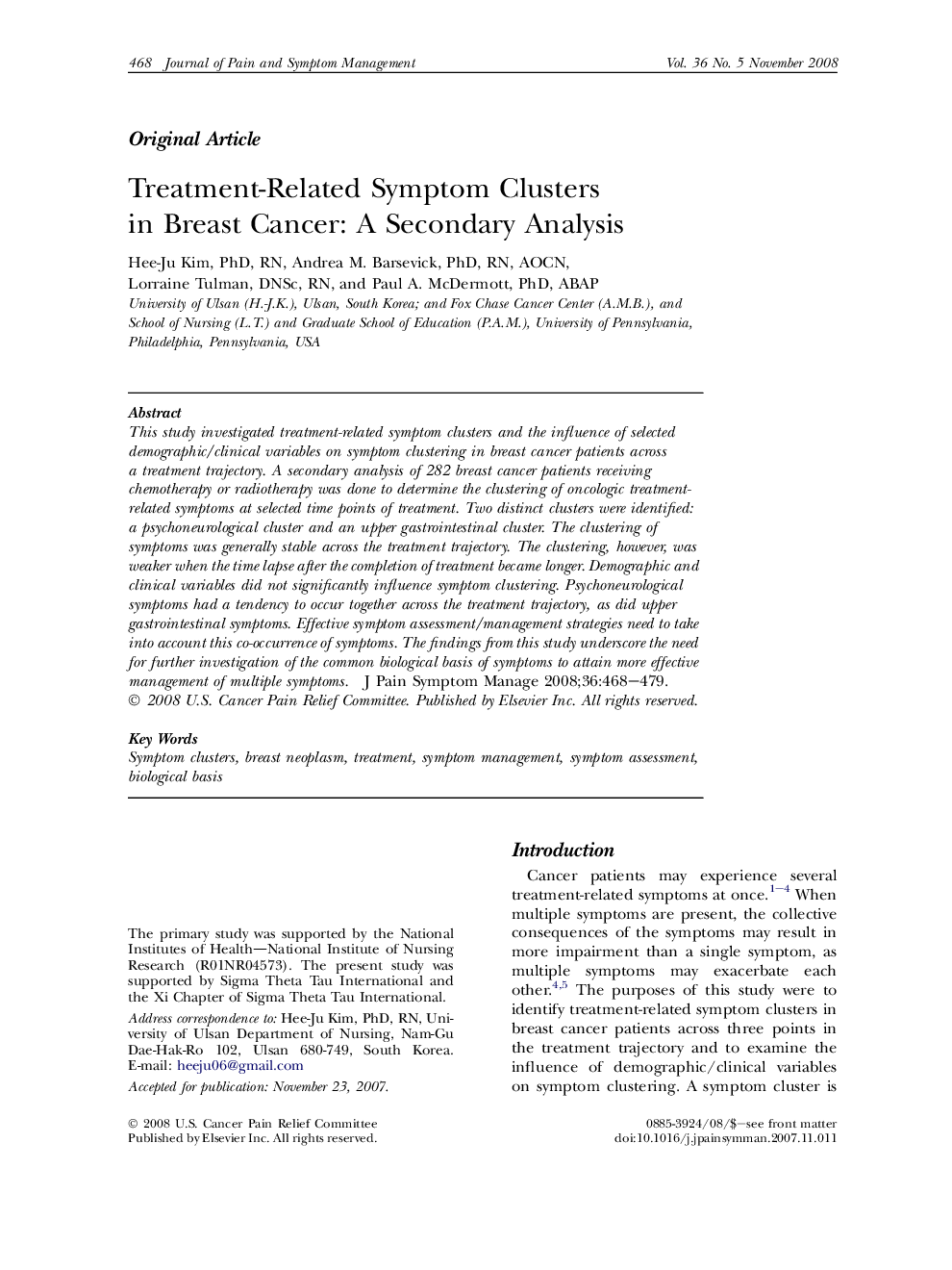| Article ID | Journal | Published Year | Pages | File Type |
|---|---|---|---|---|
| 2734994 | Journal of Pain and Symptom Management | 2008 | 12 Pages |
This study investigated treatment-related symptom clusters and the influence of selected demographic/clinical variables on symptom clustering in breast cancer patients across a treatment trajectory. A secondary analysis of 282 breast cancer patients receiving chemotherapy or radiotherapy was done to determine the clustering of oncologic treatment-related symptoms at selected time points of treatment. Two distinct clusters were identified: a psychoneurological cluster and an upper gastrointestinal cluster. The clustering of symptoms was generally stable across the treatment trajectory. The clustering, however, was weaker when the time lapse after the completion of treatment became longer. Demographic and clinical variables did not significantly influence symptom clustering. Psychoneurological symptoms had a tendency to occur together across the treatment trajectory, as did upper gastrointestinal symptoms. Effective symptom assessment/management strategies need to take into account this co-occurrence of symptoms. The findings from this study underscore the need for further investigation of the common biological basis of symptoms to attain more effective management of multiple symptoms.
